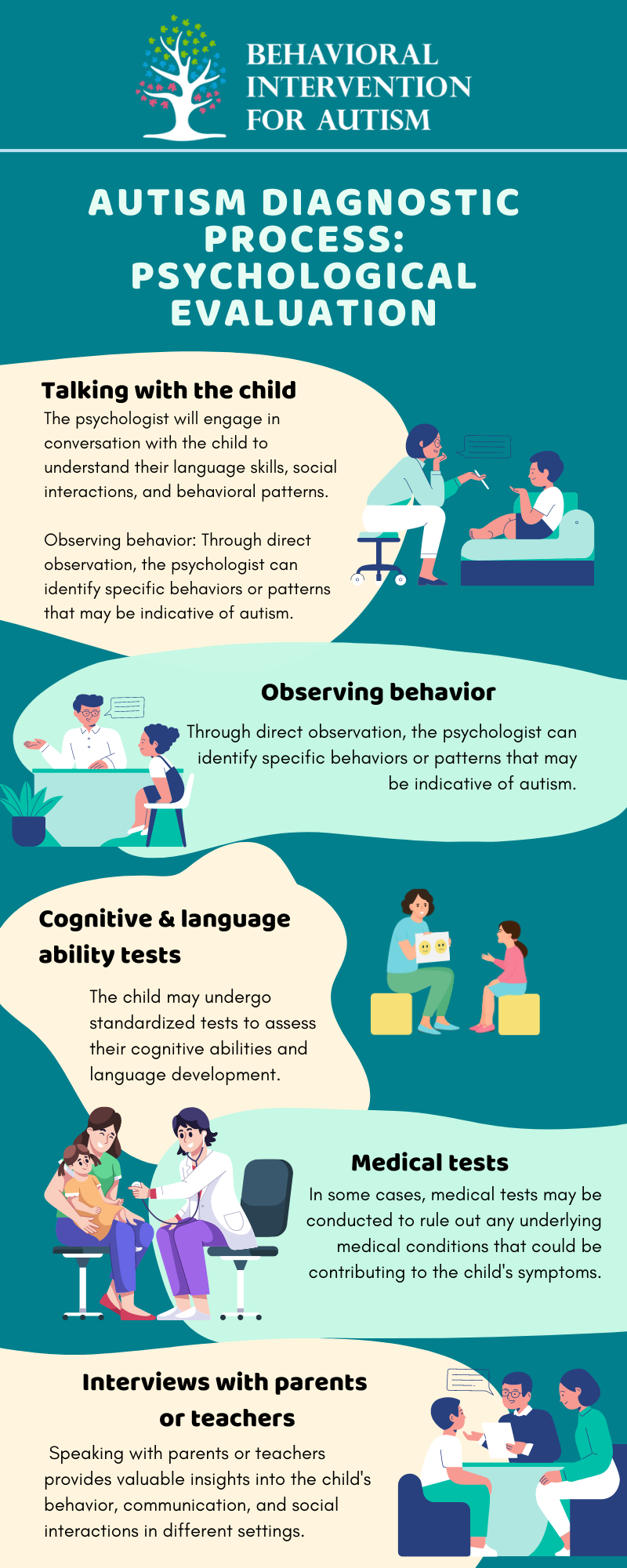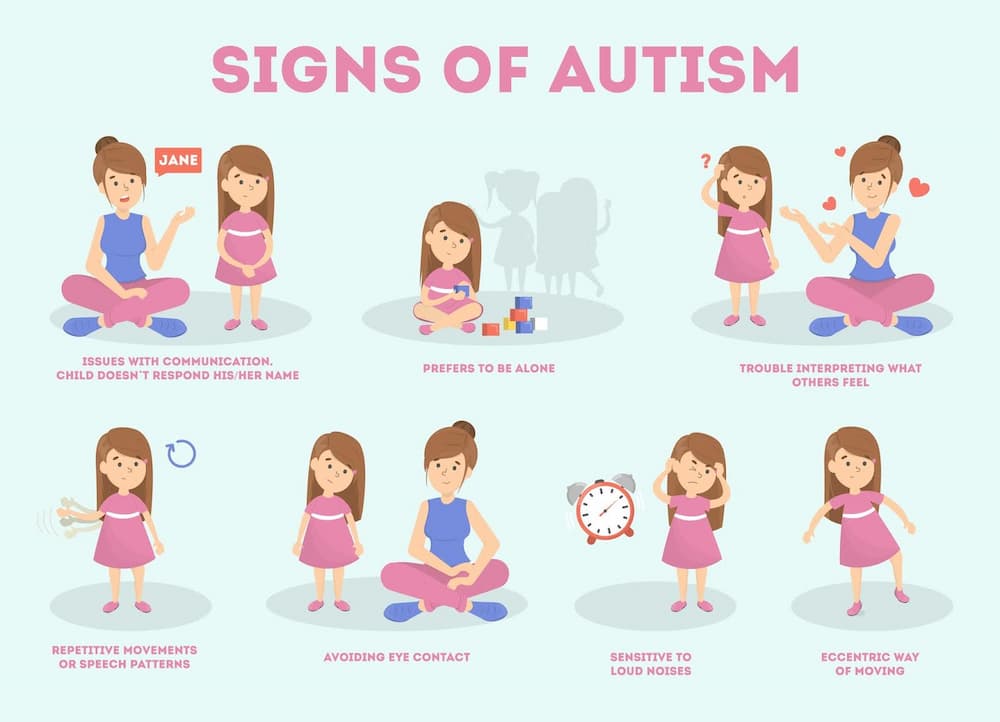Trick Signs and Symptoms to Recognize in Individuals With Behavioral Autism
When you experience somebody with behavioral autism, recognizing essential indications and signs is necessary. You could see obstacles in social communications and interaction, in addition to a strong need for routines. In addition, sensory level of sensitivities can cause frustrating experiences. Comprehending these characteristics can enhance your support and treatments, yet there's even more to discover regarding exactly how these behaviors manifest in everyday scenarios. Allow's discover what these indications truly resemble.
Challenges in Social Interactions
When you engage with somebody on the autism spectrum, you could notice they deal with social signs and interaction. These obstacles can make social interactions feel frustrating for them. You might see them avoiding eye get in touch with or standing as well close or also away during conversations, which can develop misunderstandings. They could not detect body movement or faces, making it harder for them to gauge just how others are feeling.
When they do involve, they might speak concerning their interests in terrific information without observing if you're interested. Understanding these difficulties can assist you approach communications with compassion and perseverance, cultivating an extra comfy setting for both of you.
Trouble With Verbal and Non-Verbal Interaction

Non-verbal communication can be even more tough. You may see a lack of eye call or restricted use of motions, which can make interactions really feel awkward. Faces may not constantly align with the discussion, bring about confusion concerning their feelings. Identifying these signs is essential, as it aids you far better support and involve with people on the autism spectrum. By recognizing their communication obstacles, you can foster extra meaningful links and provide a much more encouraging environment.
Repeated Habits and Regimens
Communication difficulties usually accompany various other signs of autism, such as repeated actions and a strong preference for regimens. You could discover that individuals with autism usually take part in particular, repetitive activities, like hand-flapping, rocking, or duplicating phrases. These habits can give convenience and a sense of control in an usually overwhelming globe.
Regimens are just as vital; lots of people grow when they follow a structured schedule. You might locate that changes to these routines can result in significant distress. For instance, if they have a daily ritual of consuming morning meal at a details time or adhering to a particular course to institution, any type of interruption can cause stress and anxiety.
Acknowledging these patterns assists you comprehend their habits and supply assistance. By accommodating their need for routine and enabling repetitive activities, you can produce a more comfy atmosphere that relieves their obstacles.
Sensory Level Of Sensitivities

Typical Sensory Triggers
Sensory sensitivities can significantly impact everyday life for people with autism, as certain stimulations frequently cause overwhelming responses. Common sensory triggers include loud sounds, intense lights, and strong scents. You could discover that unexpected audios, like alarm systems or alarms, cause stress and anxiety or distress. In a similar way, fluorescent lighting in stores can really feel rough and unpleasant. Structures can additionally play a significant function; harsh textiles or certain food textures might be excruciating for you. Furthermore, crowded areas can overwhelm your senses, making it tough to concentrate or relax. Comprehending these triggers can help you handle your atmosphere much better. By knowing what affects you, you can take steps to minimize discomfort and improve your daily experiences.
Behavioral Responses Explained
Understanding your behavior feedbacks to sensory level of sensitivities is necessary, as they typically expose how you interact with the globe. You could discover that certain sounds, lights, or appearances bewilder you, causing stress and anxiety or discomfort. When confronted with these stimulations, you might take out, cover your ears, or perhaps respond strongly. These reactions aren't simply traits; they're your method of managing overstimulation. You might also locate on your own seeking details sensory experiences, like deep pressure or quiet atmospheres, to assist ground on your own. Acknowledging these patterns helps you recognize your requirements better and can lead exactly how you interact them to others. By recognizing your sensory sensitivities, you can function towards developing an atmosphere that really feels much more workable try this and comfy for you.
Coping Strategies Summary
Identifying your sensory sensitivities is just the very first action; currently it's time to explore coping methods that can aid you manage those experiences successfully. Beginning by developing a sensory toolkit tailored to your needs. This might consist of noise-canceling earphones, fidget playthings, or calming scents. Developing an organized regimen can also offer predictability, lowering anxiety around sensory overload. When you really feel overloaded, take breaks in a quiet area to collect yourself. Practicing mindfulness methods like deep breathing can assist ground you in the minute. Additionally, connect your needs with those around you; having supportive buddies and family members can make a substantial distinction. Bear in mind, finding what works finest for you may take some time, so be open and patient to attempting brand-new strategies.
Limited Rate Of Interests and Emphasis
While lots of individuals develop a large range of rate of interests, those with autism typically demonstrate limited passions and an intense emphasis on certain topics. You could observe that somebody with autism can spend hours diving into their favored subject, whether it's a particular sort of train, a particular movie, or a clinical concept. This extreme focus isn't simply a pastime; it can become a main part of their identification read this and social interactions.
You might discover that discussions focus on these interests, and they might struggle to participate in wider subjects. For them, these focused passions offer convenience and a sense of proficiency. While it's essential to encourage expedition of new topics, appreciating their passions is just as necessary. By recognizing and acknowledging these limited rate of interests, you can promote an encouraging atmosphere where they really feel valued and comprehended, permitting more meaningful connections and interactions.
Psychological Regulation Difficulties
Individuals with autism commonly deal with difficulties in psychological policy, which can be influenced by their intense focus on details passions. You could observe that when an individual is deeply taken part in a preferred task, they can experience solid emotions, whether excitement or aggravation. This intensity sometimes makes it tough for them to change gears or manage their sensations when points don't go as intended.

Irregularity in Developmental Turning Points
When it comes to developing turning points, you'll observe that people with autism typically reveal a large range of irregularity. You may see a youngster succeed in language abilities yet battle with social communications.
It's vital to recognize that each person's trip is special. Some might establish complicated skills early, only to face obstacles later. Others could take longer to accomplish fundamental turning points but then thrive in details locations. Observing these patterns can assist you comprehend their strengths and requires much better.
Frequently Asked Inquiries
Just How Is Autism Identified in Children and Grownups?
To identify autism in children and grownups, specialists examine behavior, interaction skills, and social interactions. They often make use of standardized tests, meetings, and observations to determine if a specific satisfies the criteria for autism range disorder.
Are There Different Types of Autism Range Disorders?
Yes, there are various kinds of autism range conditions, consisting of Asperger's syndrome Get More Information and prevalent developmental disorder-not or else specified. Each type differs in intensity and qualities, so understanding these differences can assist you much better support people with autism.
What Therapies Work for People With Autism?
When thinking about effective therapies for people with autism, you'll find choices like Applied Actions Analysis, speech therapy, and job-related therapy. Each technique can aid improve communication, social abilities, and daily functioning customized to specific needs.
Can Individuals With Autism Lead Independent Lives?
Yes, individuals with autism can lead independent lives. With the appropriate assistance, abilities training, and resources, you can help them establish self-sufficiency, take care of daily tasks, and flourish in numerous environments, fostering their self-reliance.
Exactly How Can Family Members Assistance Loved Ones With Autism?
You can support your liked ones with autism by producing an organized setting, urging their interests, practicing patience, fostering communication, and promoting social skills. Celebrate their accomplishments, despite exactly how little, and construct an encouraging area.
Although several people on the autism range can make use of and recognize language, they frequently face significant challenges with both verbal and non-verbal interaction. Identifying these indicators is crucial, as it aids you far better assistance and involve with individuals on the autism spectrum. You might discover that individuals with autism frequently engage in specific, repeated actions, like hand-flapping, shaking, or repeating expressions.Sensory level of sensitivities can substantially influence day-to-day life for people with autism, as specific stimulations usually set off overwhelming responses.When it comes to developmental milestones, you'll see that people with autism usually show a vast range of irregularity.
 Dylan and Cole Sprouse Then & Now!
Dylan and Cole Sprouse Then & Now! Marla Sokoloff Then & Now!
Marla Sokoloff Then & Now! Earvin Johnson III Then & Now!
Earvin Johnson III Then & Now! Tyra Banks Then & Now!
Tyra Banks Then & Now! Samantha Fox Then & Now!
Samantha Fox Then & Now!